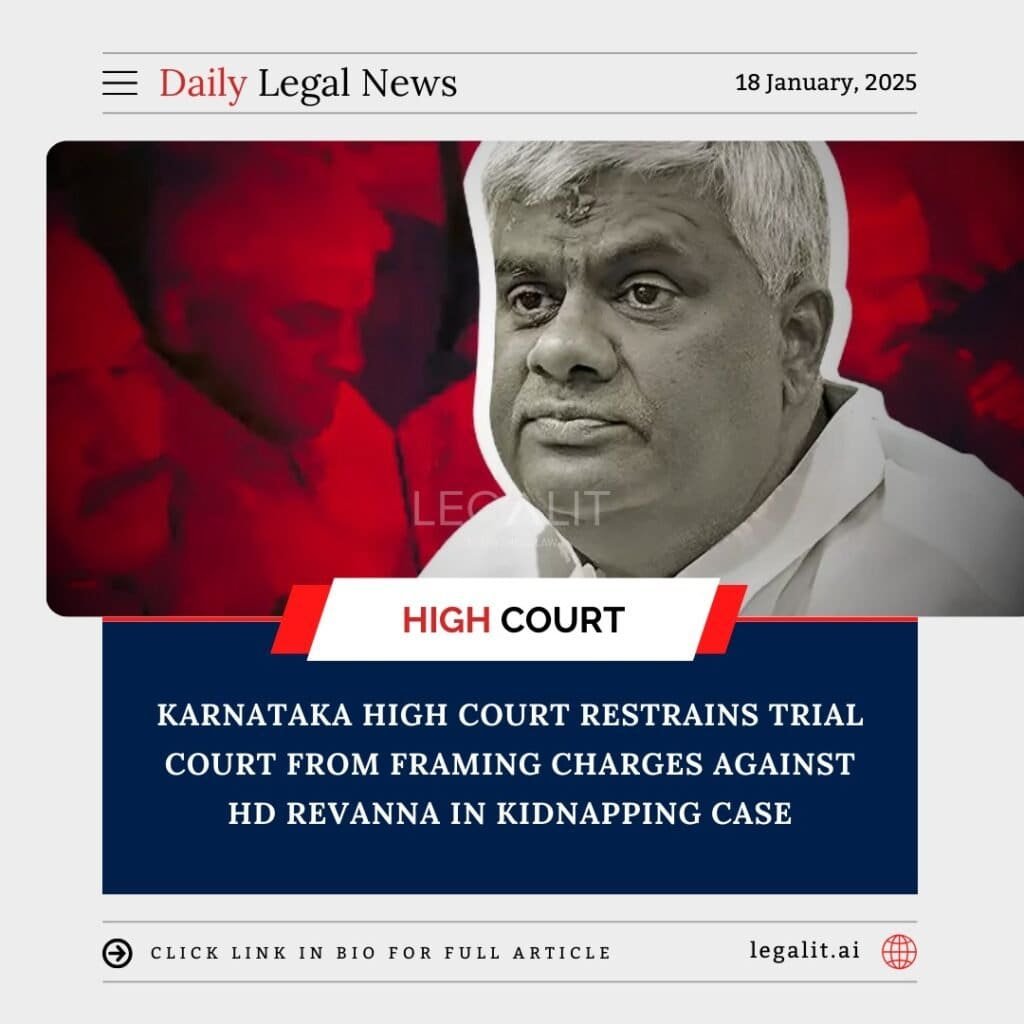
Background
The Karnataka High Court recently intervened in a case involving senior JD(S) leader and former minister HD Revanna, restraining a trial court from framing charges against him in a kidnapping case. The matter pertains to allegations of Revanna’s involvement in a 2007 incident where a person was allegedly abducted in connection with a land dispute.
The charges under the Indian Penal Code (IPC), including Sections 363 (kidnapping) and 364A (kidnapping for ransom), were being deliberated upon by the trial court before the High Court’s intervention.
High Court’s Observations
- Legality of Proceedings: The High Court questioned the procedural soundness of the investigation and the evidence presented to substantiate the charges.
- Interim Relief: Pending a detailed examination of the merits of the case, the High Court provided interim relief to Revanna by restraining the trial court from proceeding with the framing of charges.
- Impact of Political Context: The court acknowledged that high-profile cases involving political figures require meticulous scrutiny to ensure fairness and prevent misuse of legal processes.
Arguments Presented
- Petitioner’s Argument: Revanna’s counsel argued that the case was politically motivated and lacked sufficient evidence to warrant framing of charges. They also raised procedural irregularities in the investigation.
- Prosecution’s Stand: The prosecution maintained that there was prima facie evidence to proceed with the charges, citing witness testimonies and other material.
Implications of the High Court’s Order
- Temporary Relief: The High Court’s order provides temporary relief to Revanna while the case is reviewed in detail.
- Delicate Balance: The case highlights the challenge of balancing legal accountability for public figures with the potential for politically motivated litigation.
- Impact on Judicial Precedents: The decision to halt proceedings could influence future cases involving allegations against political leaders, especially in high-stakes situations.
Conclusion
The Karnataka High Court’s decision to restrain the trial court from framing charges against HD Revanna underscores the importance of judicial oversight in politically sensitive cases. By ensuring that legal processes are not compromised, the court’s intervention aims to maintain the integrity of the judiciary while safeguarding the rights of the accused. The matter will likely draw further attention as the High Court examines the merits of the case in detail.